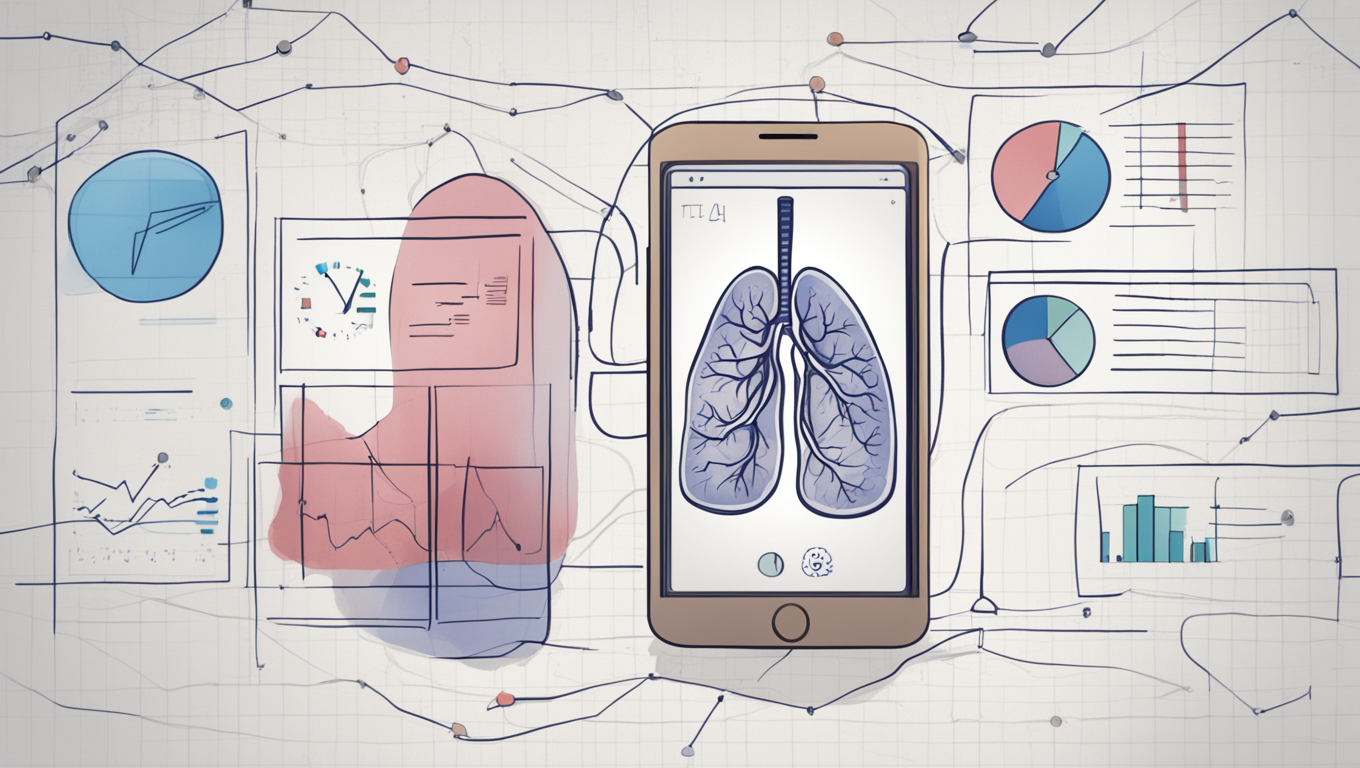An AI-powered app called Breathe RM is offering hope for patients with chronic lung conditions like cystic fibrosis (CF). The app uses artificial intelligence to predict when a patient will fall ill up to 10 days in advance, allowing for remote monitoring and reducing the need for regular clinic visits.
The technology behind Breathe RM is being trialled at Royal Papworth Hospital, with the support of medical research charity LifeArc and the National Institute for Health and Care Research (NIHR). The year-long project, known as ACE-CF, involves 50 patients, with hopes of recruiting 400 in total.
Andres Floto, a professor of respiratory biology at the University of Cambridge and a research director of the Cambridge Centre for Lung Infection at Royal Papworth Hospital, developed the AI algorithm used in the app. The algorithm analyzes subtle differences in data collected from devices like spirometers and oximeters, as well as personal smartwatches. The app also relies on self-reported symptoms such as coughing frequency and overall well-being.
Prof Floto explains that the algorithm functions as a “traffic light system” to empower patients with CF to take control of their own health. Green means they should continue their current routine, amber suggests they should do more to maintain their health, and red indicates that they should contact their CF team because they are likely to become unwell in the near future.
The app’s potential to predict exacerbations is seen as a game-changer by Kirsty Hill, co-founder of Magic Bullet, a company set up to find solutions for CF patients. Hill, whose son was diagnosed with the condition, describes the app’s predicted exacerbation feature as revolutionary and hopes it will help CF patients think about their condition as little as possible.
Beyond CF, the same technology used in Breathe RM could also benefit those with bronchiectasis, another chronic lung condition characterized by widened airways. A separate study, called Bronch-Ex, is being funded by LifeArc as part of a larger investment in chronic respiratory infection treatments. Mr. Tait, a senior business manager at LifeArc, points out that bronchiectasis often goes undiagnosed or misdiagnosed, which makes this technology potentially life-changing for those affected.
The potential impact of Breathe RM is not just limited to patients; it can also provide valuable information to physicians. By quantifying a patient’s symptoms, the app can help physicians get ahead of the game and provide more targeted care.
With approximately 10,800 people in the UK currently living with CF and an increasing number of people being diagnosed with bronchiectasis, the potential impact of Breathe RM and its AI-powered predictive abilities cannot be overstated. As the trial progresses, it is hoped that more patients will be able to benefit from this technology, improving their quality of life and reducing the burden of regular clinic visits.





Use the share button below if you liked it.